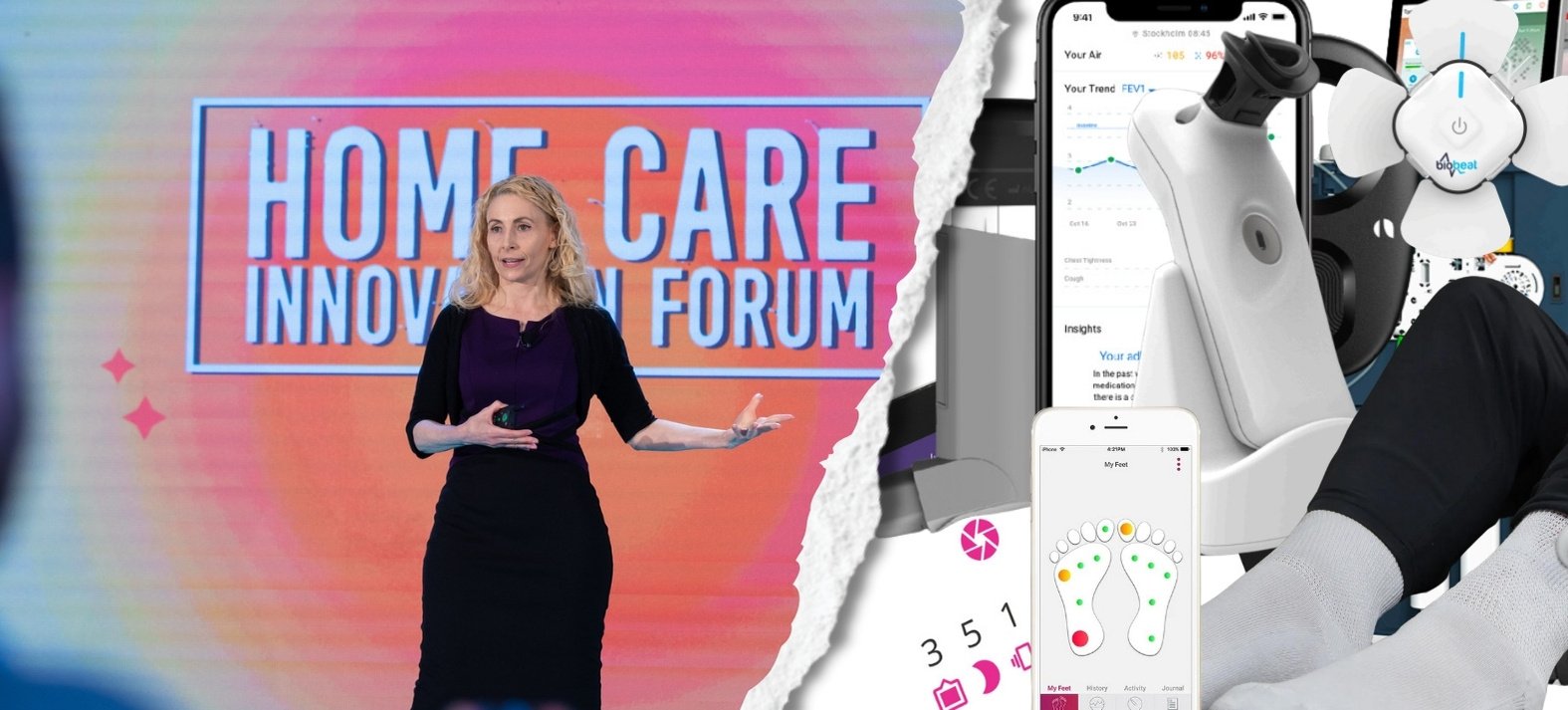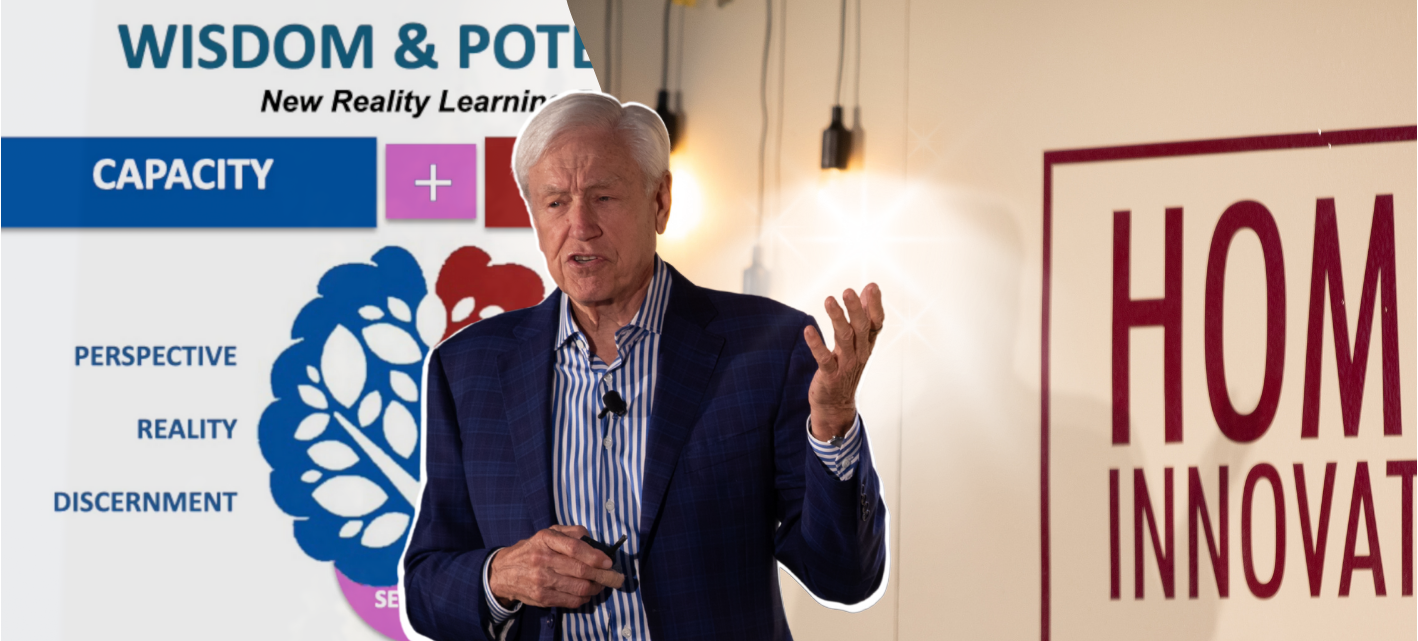Chances are, you’re unaware of half of the incredible remote patient monitoring, AI-enabled technology, and other next-generation tools that Robin Farmanfarmaian discussed at the Home Care Innovation Forum. But you need to be.
Farmanfarmaian – a healthcare author, futurist, and entrepreneur – wowed attendees with a presentation on AI and wearable innovative technologies that are set to revolutionize care in the home.
Her insights offered a glimpse into a future where care is more efficient, personalized, and effective.
Why It Matters
Farmanfarmaian emphasized the critical importance of shifting care to the home.
"Location is probably the biggest barrier to care because it leads to so many follow-up problems like mobility issues, transportation, and vicinity,” she said. “Once you solve for location, all of those follow-up problems begin to disappear."
This shift is not just a matter of convenience; it's a fundamental reimagining of how healthcare will be delivered. With major private payers investing heavily in home health care, FDA support for home health initiatives, and surging demand, the industry is poised for significant growth despite multiple challenges.
As Farmanfarmaian noted, emerging tech tools can help providers realize the promise of their high-demand services.
The Next Wave of Home Health Tech
Farmanfarmaian highlighted several groundbreaking technologies that could transform home health care:
- Advanced Remote Patient Monitoring: Devices like VitalConnect and BioIntelliSense can continuously monitor vital signs, accurately predicting hospital readmissions.
- Multi-functional Devices: The Adar Health device can measure 10 clinical-grade vital signs in under 60 seconds, simplifying home health assessments and making visits potentially less frequent, adding value and saving resources.
- Passive Monitoring Systems: Casper AI's radar-based sensor can detect micro and macro movements, providing continuous heart and respiratory rate data without patient intervention.
- Voice as a Vital Sign: Companies like Hyfe are using AI to analyze coughs, potentially predicting COPD exacerbations – a major cause of hospitalizations with over 2 million admissions annually – well in advance.
Farmanfarmaian summed up the potential of these technologies.
"Over the next 10 years, we're going to be creating a lot more clinical-grade data in the patient's home than is locked up right now in their electronic medical records," she said. “This really is an exciting time.”
Integration into Home Health Operations
For home health providers, Farmanfarmaian said integrating these technologies offers numerous benefits:
- Enhanced Patient Monitoring: Continuous data collection allows for early intervention and more personalized care plans.
- Improved Efficiency: AI-powered tools can automate routine tasks, allowing healthcare professionals to focus on more complex aspects of patient care.
- Expanded Reach: Telemedicine tools like TytoCare enable remote examinations, increasing the reach of healthcare providers.
- Data-Driven Decision-Making: The wealth of data generated by these devices can inform treatment strategies, more effectively determine resource allocation, and drive value.
In many ways, the writing is on the wall: More and more Americans - especially seniors - want to age in place and receive clinical care in the comfort of their homes. Farmanfarmaian emphasized the importance of this shift.
"We're seeing massive acquisitions and a massive shift (of care) into the home,” she said. “CMS is behind a lot of it, and now the FDA is behind a lot of it, too…hospitals are also realizing that they want to be in the home."
Improving Outcomes and Driving Efficiencies
The potential impact of these technologies on patient outcomes and operational efficiencies is significant, Farmanfarmaian said.
In a time when regulatory agencies are requiring value-based care and federal funding for Medicare-eligible home health recipients is uncertain — and has waned in recent years — the utilization of the technologies outlined by Farmanfarmaian might be more essential than ever.
She outlined ways the innovations she discussed can help dull the sharpest edges of the challenging realities providers face daily. Among those include:
- Early Intervention: Predictive analytics can identify potential health issues before they become critical, reducing hospital readmissions and improving patient outcomes.
- Personalized Treatment Plans: Longitudinal data collection allows for more tailored and effective treatment strategies.
- Improved Medication Adherence: Smart inhalers and AI coaching have been shown to increase medication adherence by up to 60% and reduce rescue inhaler use by 80%.
- Expanded Access: Technologies like autonomous breast cancer screening devices can bring critical diagnostics to underserved areas.
Farmanfarmaian wrapped up her talk with a powerful statement on the transformative potential of these technologies, tools poised to change the face of the application of in-home care for years to come.
"Technology is shifting how patients interact with healthcare,” she said. “Now that we're using Apple watches to track our single-lead EKGs and we're using devices like TytoCare, we no longer are going to tolerate 1980-style devices. This is changing the way patients will desire to interact with their healthcare providers – and it’s going to make things better for everyone."
As home health providers look to the future, embracing these AI-powered technologies will be crucial for staying competitive, improving patient outcomes, and driving operational efficiencies, she said.
Posted by
Join us!
The retreat for home health care and hospice leaders innovators.
May 17-19, 2026 | Palm Springs, CA




-2.png)


-2.png)


Comments